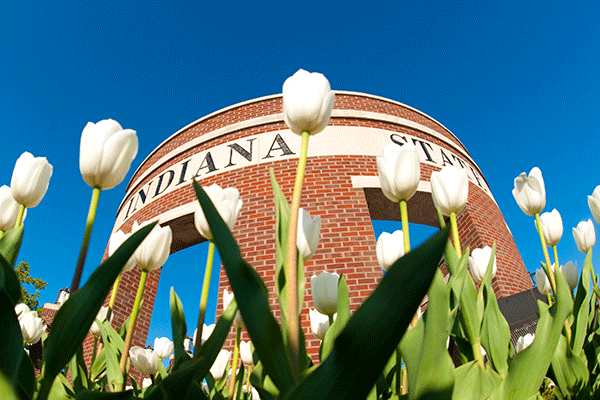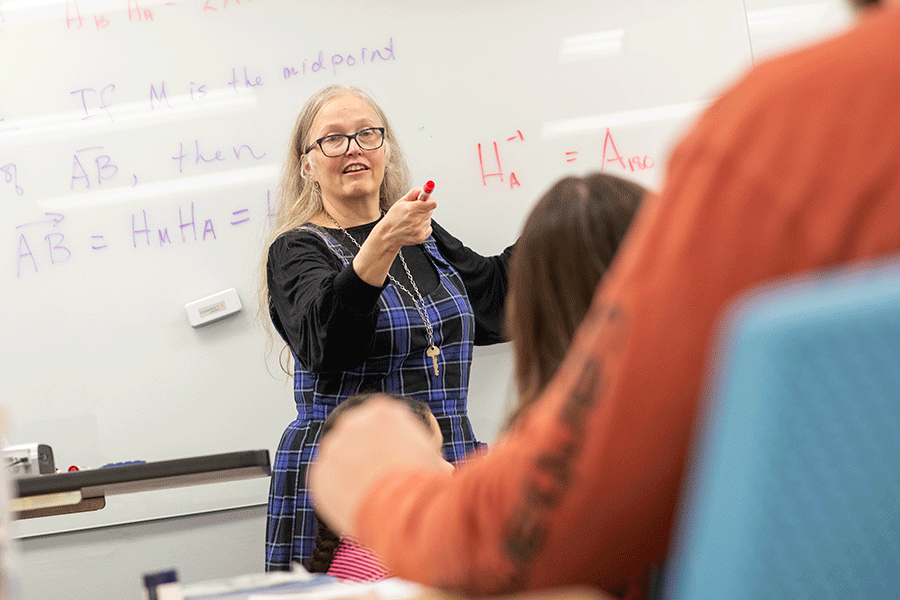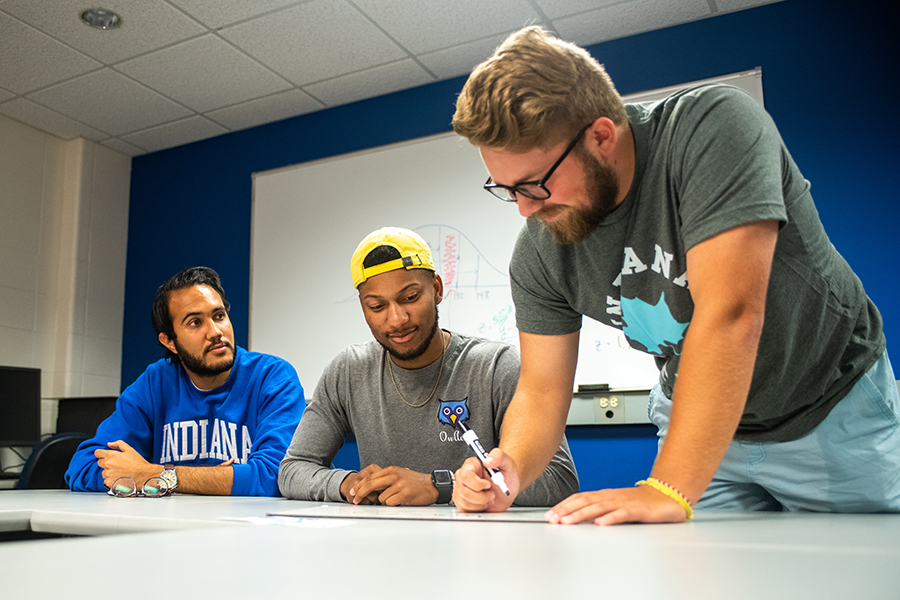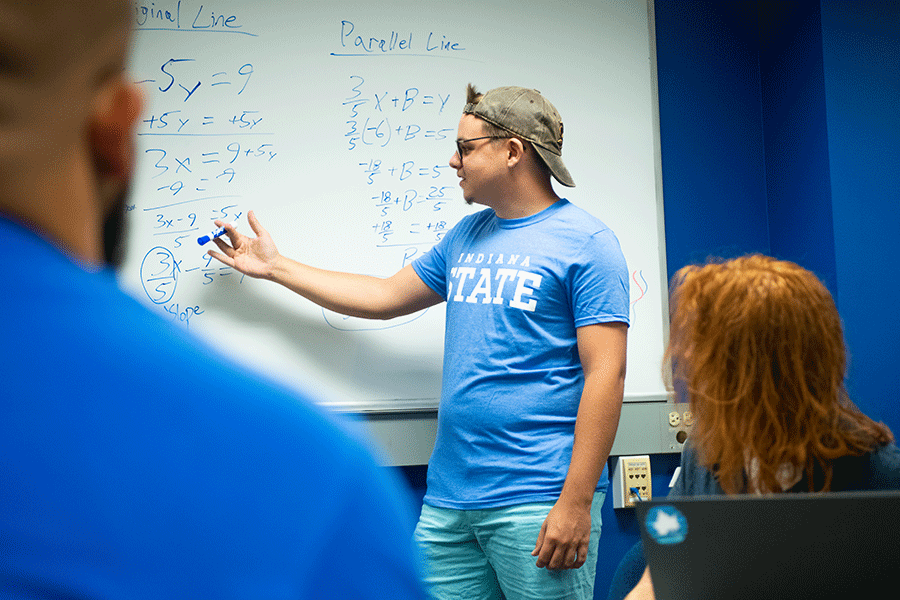Why Earn a Bachelor’s Degree in Mathematics Teaching at Indiana State?
Our mathematics teaching program is tailored to meet your individual career goals as a math teacher. The program will prepare you to teach algebra, geometry, calculus, and related math subjects to middle school or high school students.
Teach Students the Power of Numbers
Mathematics is a primary subject for students in which they learn algebra, calculus, geometry, statistics, and more. These classes help students learn to solve problems, understand logic and numbers, and excel in other school subjects, including science, social studies, music, and art.
As a student in our Mathematics Teaching program, you will have the opportunity to teach in field experiences at local middle and high schools, and to participate in tutoring sessions at Indiana State’s Math Lab.
Learn from Our Excellent Faculty
Indiana State’s instructors are passionate about mathematics and teaching. They conduct interdisciplinary research, often with student participation, and regularly present findings at conferences.
Our small class sizes allow you to work one-on-one with your professors and collaborate with classmates on projects and interactive learning activities. Your instructors will supervise your student-teaching experiences and provide you with instruction and resources for other learning activities.
Explore the Math Resource Library
Inside the Bayh College of Education, the Mathematics Resource Library is open 20 hours per week to the Indiana State community, local teachers, parents, and students. It features a database of mathematics materials available for loan.
What You'll Learn in the Mathematics Teaching Program
As a mathematics teaching major at Indiana State, you will qualify to take the State of Indiana’s licensure exam to teach math in middle schools, junior high schools, and high schools. The program provides a strong foundation in mathematics education for middle and high school grade levels, including algebra, calculus, geometry, and other math subjects.
You will take classes in the Department of Mathematics and Computer Science, and you will also take education classes in the Bayh College of Education. You can complete our Bachelor of Arts in Mathematics Teaching degree in four years of full-time study.
Your education in the mathematics teaching program will conclude with a semester-long student teaching experience. The experience may be completed in a high school or middle school setting.

Transfer Credit
Indiana State University accepts credit from regionally accredited colleges and universities within the United States, and from selected schools located outside the United States. Credit also may be granted for military training and experience. Previously earned college credit can be applied toward completion of the program per Indiana State's transfer guidelines.
Transfer GuidelinesCareer Possibilities for Mathematics Teaching Majors
Begin your teaching career with a bachelor’s degree in mathematics teaching from Indiana State. Our graduates are qualified to take the State of Indiana licensing exam for teaching mathematics in K-12.
Many of our students teach middle school and high school grade levels. They make a lasting impact at schools across Indiana and the nation in areas of algebra, calculus, geometry, statistics, and other math subjects.
Maximize Your Experience at Indiana State
Explore our Honors College to learn how you can maximize your college experience with faculty mentors, undergraduate research, internships, and Honors housing. Students in the Honors College also enjoy opportunities to travel across the nation and abroad for conferences, service-learning trips, and immersive academic and cultural studies.
Learn About the Honors CollegeRelated Programs
-

Mathematics (BA/BS)
Bachelor's
-

Middle School Mathematics Teaching (BS)
Bachelor's




